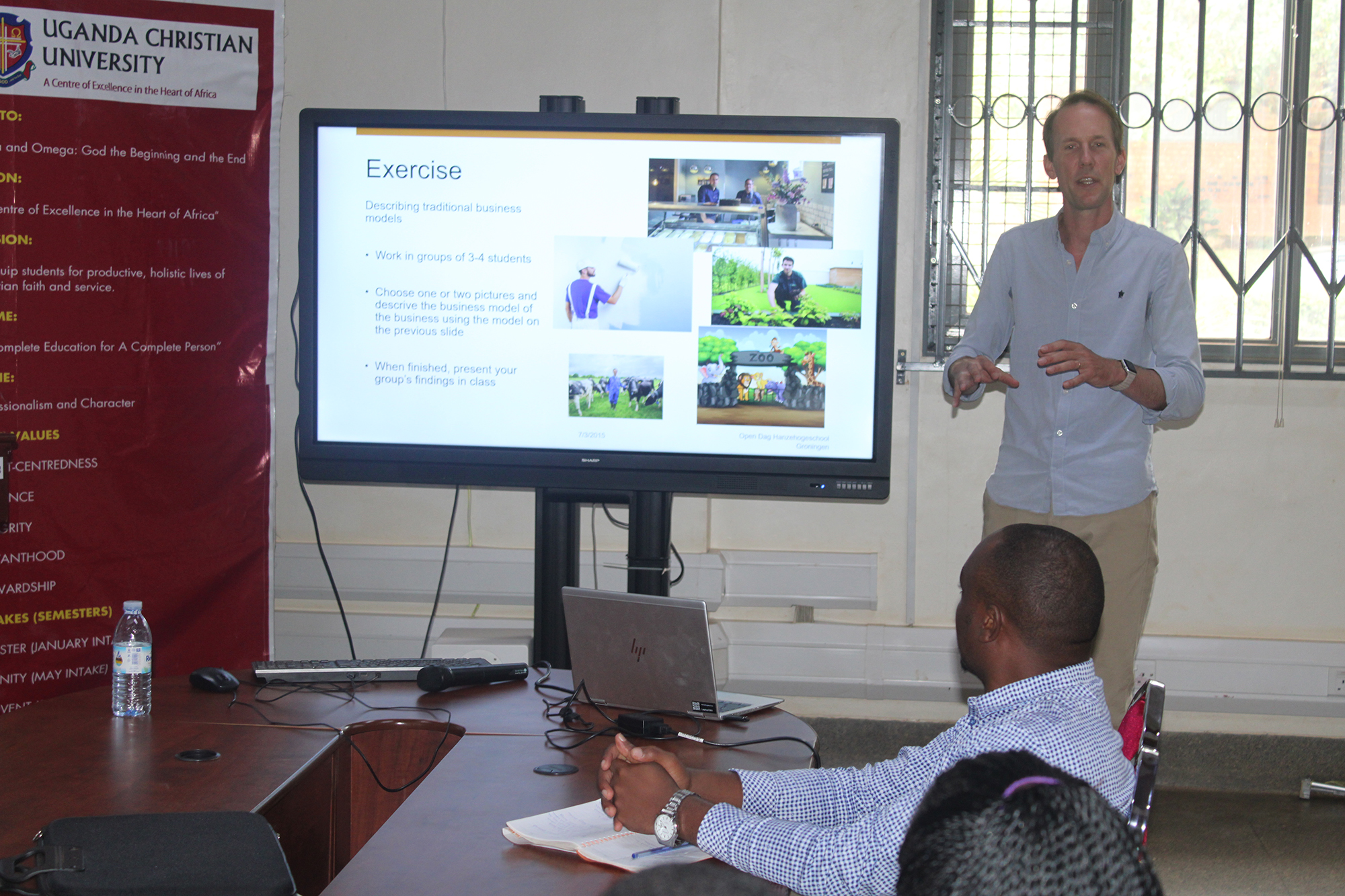Practical university education will transform Uganda’s economy – Dutch dons say
Jul 05, 2022
Uganda is a beautiful land with a lot of good resources. We have to share the knowledge and experience on how to use the resources.

Jaap Mennes, one of the visiting dons

Vision Reporters
Journalist @New Vision
Two visiting dons, Jaap Mennes from the School of Business, Marketing & Finance and Johan Heijink from the School of Financial and Economic Management at the Hanze University of Applied Sciences in Groningen, Netherlands are in Uganda.
The visit is part of a Memorandum of Understanding (MOU) between the Uganda Christian University (UCU) and the Hanze University Foundation.
They spoke to Samuel Sanya and Olivia Kamusiime about practical education and its impact on the economy, below are excerpts;
Why should university education be more practical in your view?
Johan: This is beneficial in more than one way. First of all, students need to learn a practical attitude; if they learn for four years, just from the book and then they get a job, there is a big gap between the theory and the practice at the job. Secondly, the university can have a big impact on society if the students do practical assignments for companies. You have a win-win situation, the companies learn from the students and the students learn from the society around them.

Johan Heijink, one of the visiting dons
Uganda is a developing country, does this practical approach have any bearing on economic development?
Johan: Yes, it does. We are not here to share how to do it, but we are sharing our ideas and knowledge. I think that all partners from abroad have to share their knowledge with Uganda. For example, there are many contractors from abroad that do not share their knowledge.
Let’s say there is a contractor from China for a bridge, they need to share their knowledge such that the next bridge is done by Ugandans themselves. I think that will be a good way to develop.
Uganda is a beautiful land with a lot of good resources. We have to share the knowledge and experience on how to use the resources.
Jaap: I Agree with Johan; I think better-educated students can make more impact. That is what we believe also according to the Hanze approach. We believe in active learning with students having a more critical attitude, more flexible and prepared for the outside world where it is not like how most schools are right now where it is more structured and theoretical. A more practice-oriented education makes them more ready for business life for example, and in the way, they make an impact in their business or in any organisation. Then, they can make an impact on Ugandan society and they can help the country in the future.
How is the exchange program going to work, will it be physical or virtual?
Jaap: At the moment, about three or four students from UCU that have come to Hanze through the Erasmus funding. We have had one Dutch student come to do research in Uganda from Hanze. What we have in mind is to work together virtually. We call this virtual mobility, especially after the COVID-19 pandemic. Internationalisation is what we want to do between UCU and Hanze because we can learn so much from Uganda and from students and colleagues at UCU.
We want to connect students from UCU and Hanze through virtual classrooms, and on projects. Many students in Hanze do not know anything about Africa but we can solve this with the click of a button. We can connect virtually and this is very effective and simple. Meeting face to face is always better, but it is not always possible.
Johan: We have to learn from each other; the way UCU lecturers treat students is one thing we can learn from here among others.
Jaap: Lastly, we are very grateful to be here. The hospitality has been amazing.

No Comment